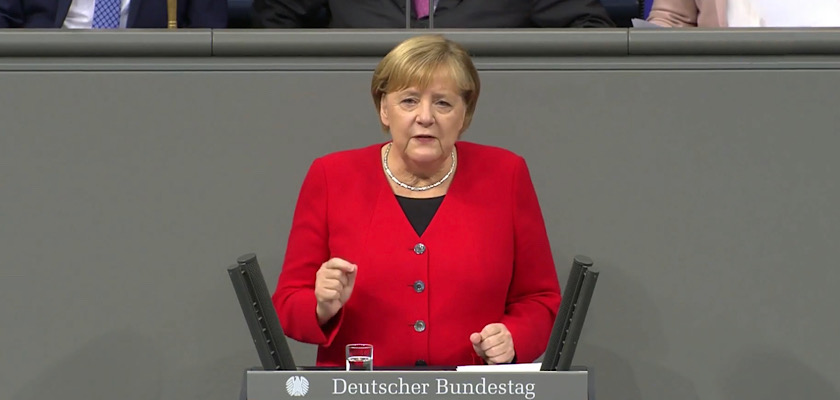In a speech on Wednesday, the Chancellor of Germany Angela Merkel said that opposing what she deems to be “extreme speech” and speech “where the dignity of other people is violated” is necessary for maintaining a free society.
Click here to display content from X.
Learn more in X’s privacy policy.
Merkel doesn’t define extreme speech or speech that violates people’s dignity which means these terms could encompass any speech Merkel doesn’t want to hear and any speech that Merkel wants to censor.
Merkel also claimed “we have freedom of expression in our country” but added that, in her view, “freedom of expression has its limits.”
“Expressing an opinion does not come at zero cost,” Merkel said.
She directed her comments toward those who “claim that they can no longer express their opinion.”
Merkel finished the speech by suggesting that suppressing speech is necessary for maintaining freedom: “This house will and must oppose extreme speech. Otherwise our society will no longer be the free society it was.”
Merkel’s speech comes days after the 30th anniversary of the fall of the Berlin Wall. Prior to the fall of the wall in 1989, East Germany operated as a separate state and was cut off from the rest of the country and speech was heavily censored. The state’s leaders banned any criticism of the government and any speech that they deemed to be “crude.”
The fall of the Berlin Wall is one of the most iconic symbols of freedom in Germany from the last 30 years and a visceral reminder of the dangers of restricting people’s freedoms. However, the country’s leaders have been placing tighter restrictions on speech in recent years.
In 2018, Germany introduced a strict online “hate speech” law which requires social media companies to remove hate speech within 24 hours or face a fine of up to €50 million ($55 million). Despite having its own strong hate speech rules and removing more than 11 million instances of what it deems to be hate speech in a six month period, Facebook became the first American social media company to be fined under this law in 2019.
And in May of this year, Annegret Kramp-Karrenbauer, who is expected to succeed Merkel as the next Chancellor of Germany, vowed to “aggressively” clamp down on free speech.









